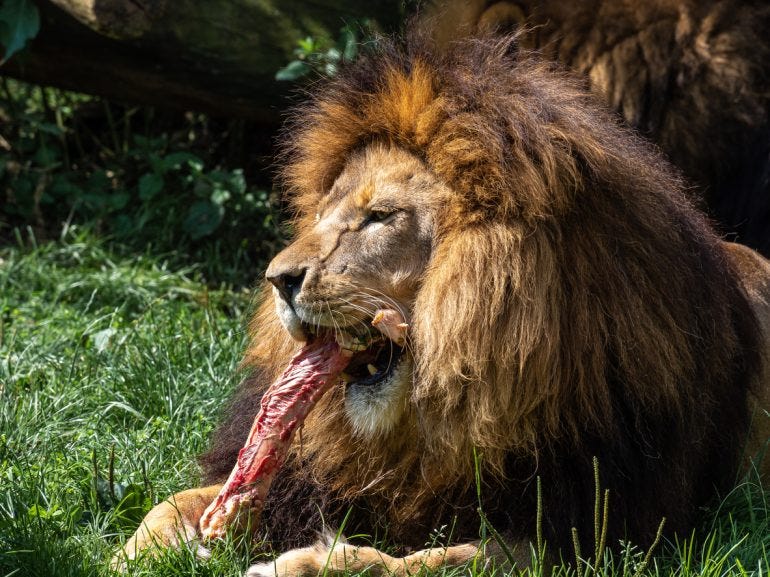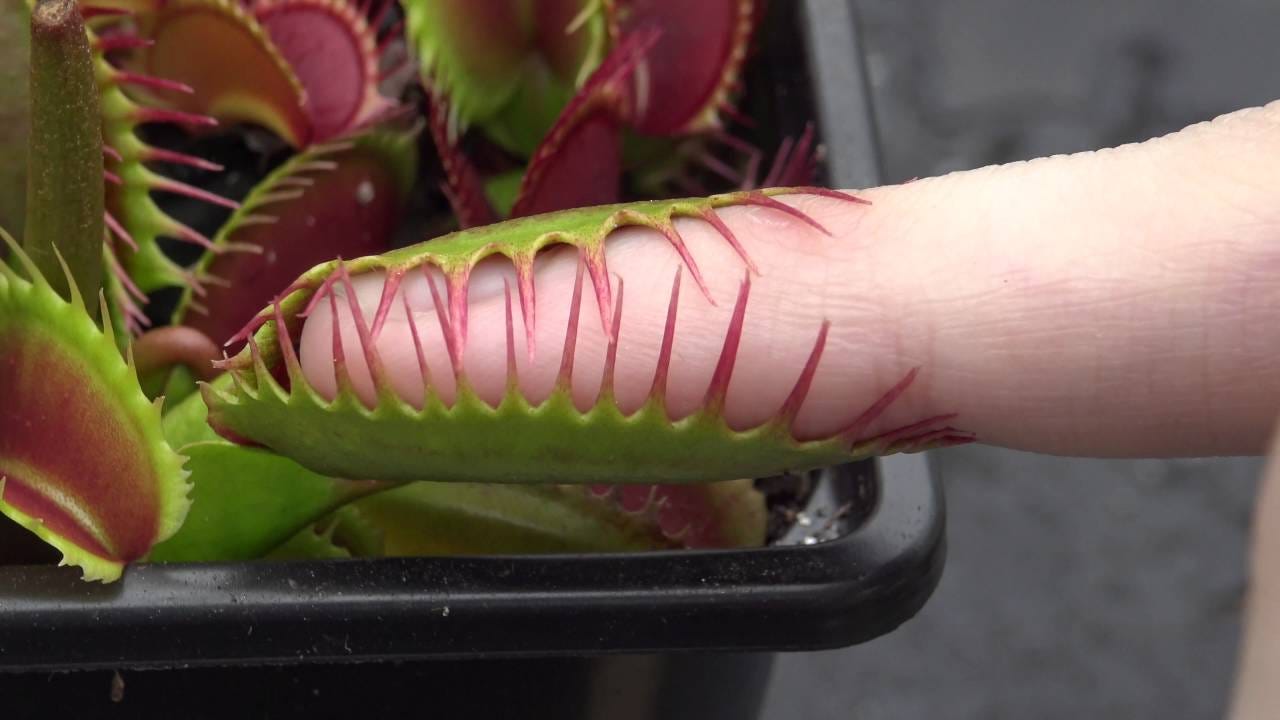The Lion Diet Reset for Jumpstarting Your Healing Journey
Just red meat, salt and mineral water to wash it down.
I gained about 40 - 50 pounds during the pandemic primarily due to stress, poor sleep and too much sugar, then I lost it all by eating whole foods, sleeping well and walking 10,000-15,000 steps a day, then I gained some of it back by eating sugar again and slacking on sleep hygiene, though I mostly kept up the walking, which had become a morning habit (I was actually pleasantly surprised to see that for over 18 months now I’ve always averaged close to 10,000 steps a day over any 6 month period (the health app in my phone)).
Meanwhile a friend of mine who had benefited greatly from the carnivore diet in the past, but fell off the wagon and had been trying to get back on for awhile had been encouraging me for some time to be his accountability partner on a diet change journey so finally I decided to take the plunge.
From personal experience I know very well that the hardest hill to climb is that initial decision to make a change for the better. After you’ve truly made a commitment to change, sustaining it is not nearly as hard.
You also find many complementary healthy changes suddenly become easier to implement. It feels like there is a “good boy” template in the subconscious and an opposing “bad boy” one, though that term carries other perhaps conflicting (perhaps not) connotations.
What I mean is that all the things I’ve collected throughout my life that I consider good healthy behaviors tend to creep back sooner or later once I decided to get healthier and take the first steps towards better health.
Similarly if I cheat unexpectedly, that single “bad” choice has usually led to most of the good I was doing falling apart and me going back to all the old bad ways.
In order to circumvent this tendency I’m planning to build in some flexibility in the form of “cheat” days, but I don’t think it’s helpful to think of them as cheat days, in fact I think it only serves to make it likely that your subconscious considers them a “bad” thing.
The key to success and sustainability is to consider them a good thing instead, think of them more as health/metabolic/recovery hormetic stress tests, that are preplanned and executed as a key part of a healthy lifestyle protocol (hormesis: low dose stressor is beneficial, high dose is harmful. Applies to exercise, sunlight, water, food, homeopathy, pharmacology, herbology, even many so called chemical toxins - the dose makes the poison and all).
The goal is not only to regain good health but to regain maximal resilience and ability to sustain that good health in the face of challenging situations where you can’t sleep properly, or eat properly or exercise the way you usually do, or you’re exposed to toxic blue light for prolonged periods, or someone close to you passes away, or you lose a job, etc.
Thank you for reading Dr. Syed Haider. This post is public so feel free to share it.
I’m one of those people who can eat a dozen cupcakes if I’m feeling stressed out, but if I stop eating sugar entirely I don’t have any cravings for it. Moderation is impossible, but abstinence is easy. So maybe I’m addicted, or maybe I’m just populated by microbes that depend on sugar.
I did a 5 day carnivore reset before my initial weight loss journey started perhaps 18 months ago now, and I was amazed to see that I had no sugar cravings for a couple of months afterwards. Literally for the first time in my life sugar bombs survived in my house for over 48 hours. We had a tub of ice cream that was not finished for a month, which would have been as likely as a pig flying before that.
But after that period of a couple months I gradually lost my indifference to sweets and then eventually went back to full on sweet-tooth, cookie-monster mode, which was a big part of my eventual downfall later.
My weight loss also stalled out before I got really lean, I felt way better, looked away better, at least in clothes, but I was probably still carrying an extra 30 pounds of fat internally - the visceral fat - which, though invisible to the naked eye, is the worst kind for your health.
Carnivore seems to most people to be like an extreme overreaction to the vegan movement, and perhaps it is culturally an immune reaction of sorts, but it pays to consider what the proponents of the diet say.
One of the most telling arguments in favor is that plants are trying to kill you.
Plants like all living things, would prefer to stay alive, and are in a life or death struggle with those who would kill them.
Since they can’t run away or fight off their predators, they primarily rely on poisoning them, and animals have developed finely tuned senses that let them know if there is a poison present - it tastes bad, usually very bitter, and the usual reaction is to spit it out (and wash your mouth out), the way a baby will when you try to feed them broccoli or Brussel sprouts.
Most non-human mammals that are herbivores or omnivores are only evolutionarily optimized to digest a small selection of plants in their environment.
Human civilizations first of all domesticated and bred plants to make them more palatable, and then developed intricate methods of neutralizing and predigesting plants via soaking, sprouting, culturing and cooking plant foods to make them less toxic, though we can’t entirely eliminate all toxins even with these complicated traditional procedures (hormesis argues the remaining toxins are probably beneficial stressors, and there are other beneficial phytonutrients too).
Modern manufacturing eschews all that traditional wisdom for quick production methods that leave the lectins, oxalates, phtyates, tannins, hormone disruptors, and nutrient blockers intact.
But even if someone took appropriate care to use traditional methods of food preparation, and also made sure to use seasonal ingredients, and combined them in the traditional recipes that made use of various complementary ingredients, they would still be left with some degree of plant poisons in their diet.
I was shocked to learn that every plant in the grocery store has dozens of known carcinogens, and plants produce phytotoxins that total 10,000 times the amount of pesticides sprayed on them (the primary concern with meat is improper handling leading to microorganisms polluting it, and improper cooking methods leading to char - i.e. you don’t want to burn it).
As far as we know all human societies in every age throughout history ate as much meat as they could get their hands on, and supplemented with plants only when necessary to avert calorie restriction, treat/prevent illness, and as a garnish, or side dish to their meat. The farther back we go the less palatable the plants were and they required even more processing to make them edible.
Agrarian societies were always, and still are, less healthy than their hunter gatherer counterparts.
Now, to be clear, I’m not arguing for a forever meat diet.
The Lion diet refers to eating just ruminant red meat garnished with salt and washed down with mineral rich water.
The way I see it, this is an elimination diet, of which there are many.
Some popular ones include AIP, Carnivore and Vegan.
AIP is the autoimmune paleo diet and advises removing grains, sugars, eggs, dairy, soy, and nightshade vegetables.
Carnivore allows all meat, fish, dairy and eggs.
Vegan allows only plant products.
The idea behind elimination diets, which were a mainstay of pre-modern medical systems, and still used heavily in functional and alternative medicine today, is that something you are eating is preventing your body from recovering from chronic illness, perhaps due to a “leaky gut”, i.e. your gut lining has become damaged and permeable by some toxic insult (like viral/vax entry into the bloodstream and subsequent transfection of key cells) to partially digested food particles which trigger immune reactions that can cross react with your own tissues or simply create inflammation that keeps you sick, and keeps the gut lining from healing.
Eliminate the foods and eliminate your symptoms, heal the gut, then reintroduce the foods one at a time, carefully watching for reactions.
It can get complicated because the reactions can take weeks to wear off, and days to recur upon reexposure. So the reintroduction phase is usually done by consuming the test food for 3 days then waiting another 4 days for a reaction.
Tracking gut permeability tests (lactulose-mannitol ratio, zonulin level, antibodies to zonulin, actin, and lipopolysaccharide) can help determine when to begin the reintroduction phase.
Given the inherent toxicity of plants, which has developed as an evolutionary defense mechanism against being eaten, and the relatively benign nature of animal meat the safest elimination diets either limit the most toxic plant foods, or eliminate plant foods altogether.
In my case I know I have an autoimmune issue with mild psoriasis, which is likely related to leaky gut, I also have had chronic constipation, occasional reflux, occasional headaches, occasional stuffy nose, a tendency towards insomnia, and relatively rapid aging in the last few years with significant weight gain.
So my plan is to try to reverse all of these naturally and I’ll likely be checking micronutrient levels and genetics at some point to fine tune things using protocols developed by Chris Masterjohn.
Diet over the longer term will likely trend towards lower in carbs, higher in meat/seafood, dairy, and eggs, but this will depend on my carb tolerance in the future as evidenced by markers like body fat and fasting insulin levels. Will eat shortly after waking to help strengthen the circadian rhythm further.
Exercise will start with mobility drills, walks, sprints (because no other exercise naturally stimulates muscle gain and fat loss better - just look at an olympic sprinter - the message to your body is either: something’s about to kill us, or we’re about to starve and need to catch some food fast, so shape up ASAP and help me out here), body weight exercises, maybe kettlebell swings.
Skin and hair care will include traditional topical treatments like egg whites, egg yolks, tallow, and essential oils.
Sleep will be as much as needed and regular hours.
Light environment: aim to minimize blue light toxicity from sunlight filtered through window glass, and indoor bulbs by spending as much time outdoors as possible. Sun exposure in the mornings and around sunset especially with some midday sun.
Also need to work on emotional and spiritual growth and interpersonal relationships, but those are higher hanging fruit.
Anyway let me know if you’ve tried an elimination diet in the past and how it went for you.




No comments:
Post a Comment